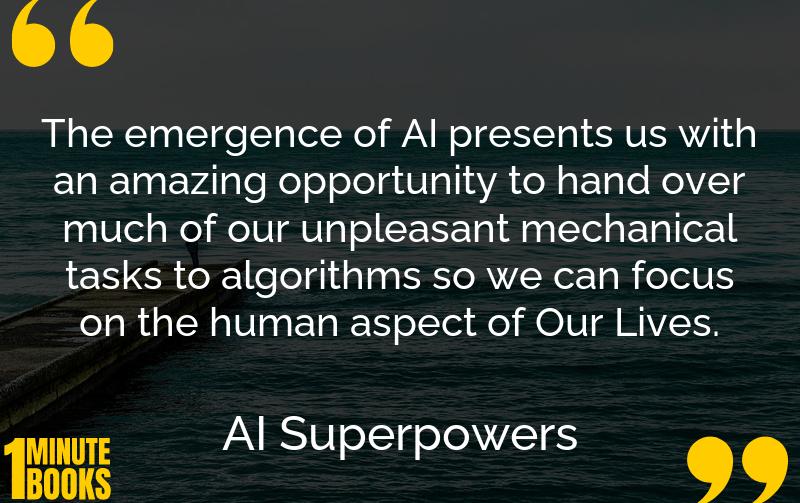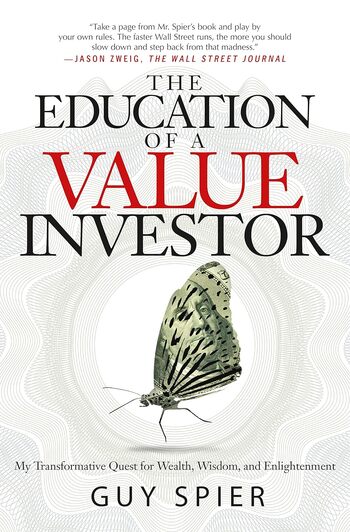
AI Superpowers by Kai-Fu Lee explores the race between the U.S. and China to dominate the AI economy, highlighting China’s rapid advancements and unique position. It discusses AI’s transformation impact on industries and society amidst hopes and concerns.
Main Lessons
- China is heavily investing in AI, aiming to surpass Silicon Valley by creating favorable conditions for startups.
- The breakthrough in deep learning marks a significant shift in AI capabilities, making complex problem-solving accessible.
- China’s transition from a copycat tech hub to an innovative leader showcases its resilience and adaptability.
- Heavy touch business models in China allow startups to capture more data, crucial for developing superior AI solutions.
- WeChat symbolizes China’s mobile-first approach, transforming daily interactions and accumulating vast user data.
- Four waves of AI are identified: Internet AI, Business AI, Perception AI, and Autonomous AI, with varying global leadership.
- China excels in perception AI through cultural acceptance of reduced privacy, allowing advancements in facial recognition.
- Though the U.S. currently leads in autonomous AI, China’s proactive policies promise future advancements.
- Experts are divided on whether AI will lead to a Utopian or dystopian world, reflecting diverse perspectives on its impact.
- AI may displace jobs, but focusing on human-centered roles could build a more rewarding society.
- The author’s personal health crisis highlights the value of relationships, advocating balance between AI and humanity.
- Policy innovations, like universal basic income, could support displaced workers, but might miss deeper social change.
- Bhutan’s approach to progress through gross national happiness could inspire new economic models valuing well-being.








